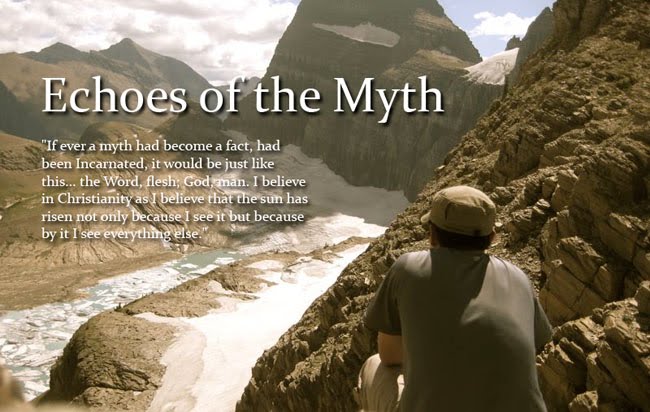Thursday, April 21, 2011
Maundy Thursday Meditation
First off, let's answer the question that I know everyone has but is afraid to ask. What does 'maundy' mean? I remember the first time I heard the term, it took me a while to get images of moldy bread out of my mind. 'Maundy' refers to the Latin term, 'mandatum' meaning command - we get the word 'mandate' from this root. Before his betrayal, Jesus sat with his disciples and observed the Passover feast. It was during that meal that Jesus issued two commands - two observe the Lord's supper in remembrance of him; and to love one another as Jesus had loved them. Thus, the night is remembered as a night of commands - Maundy Thursday.
Now onto today's meditation - the glory of Christ in his union with the Church.
"Now as the church submits to Christ, so also wives should submit in everything to their husbands. Husbands, love your wives, as Christ loved the church and gave himself up for her, that he might sanctify her, having cleansed her by the washing of water with the word, so that he might present the church to himself in splendor, without spot or wrinkle or any such thing, that she might be holy and without blemish." Ephesians 5:24-27
This passage is normally spoken of in terms of the marriage relationship between man and wife. We usually speak of its practice and what headship and submission should look like in the marriage relationship. Let's take a moment though to think about the model, the deeper relationship that such headship/submission is designed to represent - the relationship between Christ and the church.
One of the things that I have been reflecting on this Holy Week is what Christ died for. I tend to vacillate between two extremes - the vague/abstract body of sin and the detailed personal sins of my life. On one end, I think about Jesus hanging on the cross for the sins of the world. It's vague, but weighty, like a cloud or haze of evil that Jesus is taking upon his shoulders. On the other, I think about a detailed laundry list of rebellion, lust, lies, pride, and idolatry with my name at the top. I hadn't really thought that the two lists actually overlapped and that there was a corporate dimension to the laundry list. What I mean is that I'm realizing that there are patterns, systems even, that embody and characterize a world that is in rebellion to God. There are political, economic, social, and even religious systems that represent the 'old order' - the dehumanizing of individuals either through corruption and greed or oppression and poverty. Jesus took the whole of brokenness in our world - relationships, societies, individuals, morality, you name it - and he was crucified for them. This is both abstract and very specific.
Here's what it has to do with today's theme. Just as Christ took on the whole of sin, both abstract and tangible, Christ died to redeem a people for himself, the Church. He gave himself up for her with a specific goal in mind - to sanctify her. Here we see the glory of Christ in his union with the church. Jesus' death didn't just abolish the old systems and the vestiges of a broken world. It also established a new community with new rules of engagement, and even the power to live by them. Jesus' death made possible the beauty of a new order in which individuals can become genuinely human by bringing the pain and disappointment of their lives to the foot of the cross. It's a new way of life such that forgiveness and reconciliation are offered as real possibilities. It's a way of interaction, doing life together, that reflects the bright hope and power of what Christ has done, and the crazy thing is, it's exactly what Jesus intended. Jesus didn't die solely for my own personal conscience. He came to set the world right, and I am part of that world.
The glory of Christ is that he didn't just save us and leave us to figure it out on our own. He established a bride in waiting, the Church, and as committed as he was in giving himself up for her, he is committed to continuing to wash her in order to present her blameless on the day of his return. Now think about marriage in that light. My relationship with my spouse is supposed to mirror that. Do my kids, my neighbors, my friends, and my family see within the contours of my marriage this deeper relationship?
Perhaps today is the opportunity to think about how the cross of Christ not only applied to me, but to my marriage and to my church.
Subscribe to:
Post Comments (Atom)


No comments:
Post a Comment